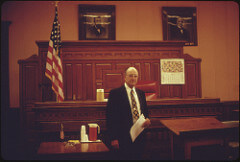Conservatorships
 Conservatorship is a court proceeding where an individual is considered by a judge to be unable to manage their own financial affairs so another person or entity is named to handle it for them. There are many reasons why a conservatorship may be needed; disability, dementia, youth, incapacity, and more.
Conservatorship is a court proceeding where an individual is considered by a judge to be unable to manage their own financial affairs so another person or entity is named to handle it for them. There are many reasons why a conservatorship may be needed; disability, dementia, youth, incapacity, and more.
The process can be costly, requires an annual accounting, court hearings, and in some unfortunate instances completely uses up the entire estate of the person it was intending to protect.
Two methods typically used to avoid conservatorships are Powers of Attorney and Trusts.
Powers of Attorney
Powers of attorney work in some instances but have proven to not be a guaranteed solution. For example, title companies will not accept a power of attorney to sell real estate unless the document specifically mentions the power to sell the very property in question. Another example are IRAs. Normally the brokerage firm will not permit an agent under a power of attorney to exercise some powers unless the power of attorney specifically states retirement accounts AND lists that the agent can do the very thing it is trying to accomplish. The final example of a power of attorney problem is the age of the document. Sometimes a company will not accept an older power of attorney even though the statutes say the documents do not expire.
Trusts

The other tool to deal with conservatorship is a trust. By placing assets in the name of the trust, the person has more assurance that if down the road they become unable to manage their own financial affairs, the next successor trustee can act on behalf of the assets. For example, let’s say I I own a piece of black acre and place it in my trust. Years down the road I develop dementia. My successor trustee that I named in my trust can sell my share of black acre, rent it, or handle it as if I were able to act on my own behalf. No power of attorney is needed.
If you have any questions about conservatorships, please give us a call at 480-345-0444.
Kevin P. McFadden, Attorney at Knollmiller & Arenofsky, LLP




